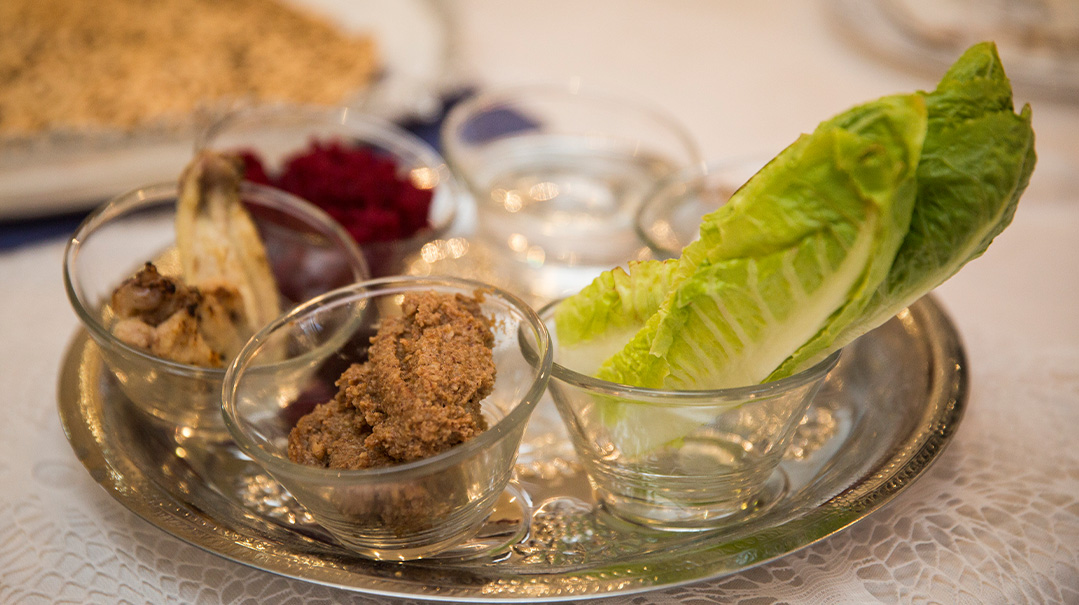Confession and Progression
| September 23, 2020This year, I decided, my Vidui will be personalized

It was only one month into seminary, but I was already awestruck with renewed appreciation for Torah’s depth and magnificence. As the Yamim Noraim drew closer and my teachers expounded on the magnitude of these days, I was determined that this year, I’d do it right.
My first stop was the bookshops crowding the alleys of Meah Shearim. I chose a slim pamphlet with a man’s stooped, contrite profile silhouetted on the cover. It contained the text of the Vidui, accompanied by an explanation for each sin, and relevant examples. I felt like I’d struck gold: The repetitious, cryptic language of Vidui suddenly assumes meaning and import.
This year, I decided, my Vidui will be personalized. I meditated on every Ashamnu and Al Cheit, considered which of the year’s misdeeds corresponded to the examples given. Then I meticulously recorded an example for each of my sins between the tightly printed lines.
That year, I pronounced the first meaningful Vidui of my life.
A year of learning and friendships and meteoric growth tumbled by, and before I knew it, Yom Kippur beckoned. I once again purchased the thin volume with the stooped man on the cover, but before I charted my spiritual deficits, I reviewed my inscriptions from last year’s pamphlet. To my shock and glee, so many of the last year’s confessions were utterly irrelevant. A year’s worth of phenomenal effort to transform my dress, speech, and behavior was arrayed before me, indisputable in blue Bic ink.
That year’s Vidui inscriptions bore scant resemblance to the previous year’s.
Two years later, my Vidui footnotes acquired an entirely new cast of characters: a husband, a baby, a mother-in-law, and married friends. Consequently, the transgressions I inscribed offered a pretense of change and growth; with the main players and core issues repackaged, I could convince myself that I’d made significant progress.
That year’s Vidui inscriptions, albeit different, were unnervingly familiar.
Two years passed. Reviewing the previous year’s Vidui booklet, I cringed as I read descriptions that could substitute verbatim for the current year’s Ashamnus and Al Cheits: Onaas devarim. Zilzul horim. Kinah and kavod. A year’s worth of replays between neighbors and parents and husband and friends were arrayed before me, indisputable in blue Bic ink.
That year’s Vidui inscriptions were identical to the previous year’s.
Another year melted away. This time I evaluated the previous year’s Vidui with cautious hope. Maybe, just maybe, I’d encounter an egregious sin I’d battled and overcome, a monster vanquished by the cannons of self-control. I flipped through the pages, searching for some indication of major change that would reassure me of my steady progression toward tzidkus. To no avail. The only differences I noted were two insignificant points, “changes” so frustratingly trivial that I was embarrassed to dwell on them.
That year, I briefly considered recycling the previous year’s Vidui booklet, inscriptions and all.
Two and three years hence were copy-cut-pastes of the preceding ones. Those whisper-thin trifles masquerading as change continued, but my pride didn’t allow me to acknowledge them. I didn’t consider this to be an acceptable ROI for an entire year’s worth of effort.
That year, in an act of utter defeat, I surrendered and used the previous year’s Vidui pamphlet.
The rotations of autumn to winter, summer to spring, cycle furiously by in an ever-tightening arc. New babies are born, siblings wed, and the little people who cried and kvetched for attention now argue and reason in deepened voices and traipse through my home on impossibly long legs. It’s been years since I narrated my Vidui, chronicling yet another stagnant year for posterity.
One afternoon I’m hunting in the living room cabinet, a storage space that shares its legacy with the Bermuda Triangle. My hand closes on a stack of slim pamphlets, and I realize what my fingertips grasp: my old Vidui booklets. Whatever I was seeking is rendered irrelevant, and as I open the first volume, the years evaporate.
Names and venues I haven’t considered in years suck me into a tornado of memory as I relive the repeated struggles of my younger self. After I close the last pamphlet, it occurs to me: Thirty percent of these carefully penned admissions no longer feel applicable. And this time it’s not just an elaborate game of new name, same sins; so very many of these confessions are irrelevant.
Over 20 years after my first Vidui booklet narration, I finally assimilate the truth: Quick-fix external change is exhilarating, but it’s no substitute for the gradual, incremental work that effects deep internal change. Because when it comes to spiritual progress, the tortoise’s tedious, but steady, progression always outperforms the nimble hare. Given the time, the “grossly insignificant” change I callously ignored for years, blossomed into genuine growth.
Surrounded by old Vidui booklets, that truth is arrayed before me, indisputable in blue Bic ink.
(Originally featured in Family First, Issue 711)
Oops! We could not locate your form.







